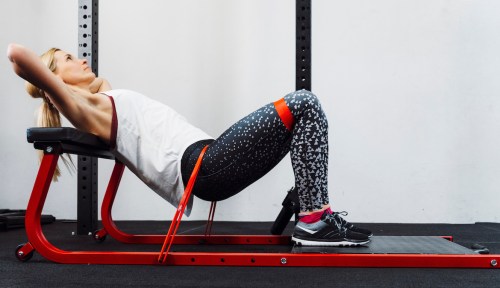Our editors independently select these products. Making a purchase through our links may earn Well+Good a commission
If you’re someone who swears by fitness trends, you may have tried the seemingly simple, but actually rigorous 12-3-30 workout, or maybe you devoted yourself to the 30-day plank challenge making its rounds. No matter how you choose to move your body, though, we’d bet that you tend to dedicate at least 15 to 20 minutes toward a workout, if not 30 minutes to an hour. While those durations are great, here in 2023, exercise snacks—or bite-sized 5-minute workouts—are on the rise.
Experts in This Article
board-certified family nurse practitioner and co-owner of Adair Family Clinic and MedSpa
cardiologist at the Stony Brook Heart Institute
But it gets even better: According to a December 2022 study conducted by the University of Sydney, researchers found that just three to four one-minute bursts of intense activity per day can boost overall health and reduce the risk of premature death by up to 40 percent (and up to 49 percent when we’re looking at deaths tied to cardiovascular disease in particular).
Sounds too good to be true, right? We chatted with two health experts to determine just how beneficial short bursts of activity can be.
How short bursts of activity boost your heart health
Notice how you may feel out of breath after running up and down the stairs to swap out a load of laundry or accept the Grubhub delivery you’ve been eagerly awaiting? While it may seem rather inconsequential compared to a dedicated 30- to 60-minute workout, board-certified family nurse practitioner Kris Adair, MSN, RN, FNP-BC, who has a background in cardiology and is the founder of Adair Family Clinic and MedSpa, says that weaving regular bursts of heart-pumping moments into your daily routine—even just via everyday chores—will boost your overall health.
“Short bursts of activity are very helpful to your heart health because it provides increased circulation and oxygenation to the entire body in a way that is similar to revving an engine,” she explains. “This sudden boost provides nutrients and oxygen to areas of the body that may not have been efficiently receiving them, clearing out toxins, debris, and stagnant blood that can slow down body function or even contribute to dysfunction in these areas, restoring them back to normal and reducing the risk of heart disease, stroke, or cancer.”
Michael Gavalas, MD, a cardiologist at the Stony Brook Heart Institute, adds that in addition to substantially lower all-cause, cardiovascular disease, and cancer mortality risk, these bursts of activity improve cardiorespiratory fitness, which can be seen pretty soon after implementing this method.
“Physical activity helps to improve cardiorespiratory fitness and higher levels of cardiorespiratory fitness are associated with lower rates of all-cause mortality,” he explains. “Repeated short bursts of vigorous physical activity can result in improvements in cardiorespiratory fitness within just a few weeks.” (If you’re curious, check out a few more benefits of cardio exercise!)
How long does a burst of activity have to be to be beneficial?
As mentioned in the study, bursts of activity ranging in duration from just one to two minutes is all it takes to improve your heart health and well-being as a whole. But don’t just call it quits after one round of rigorous activity. According to the study, you have to perform these bursts at least three to four times per day to see results. And you’ll want to make sure each burst is vigorous enough to really get your heart pumping.
The best activities to boost heart health
Think of the moments in your daily life where you notice you’re out of breath. Maybe it’s when you’re chasing your dog or toddler around the house, or perhaps it’s while running to make your train during your daily commute. So long as the activity makes your heart race, it constitutes as a proper pick. “Essentially any sort of unstructured activity that increases cardiovascular circulation and that you find enjoyable can be performed as a short burst activity,” Adair confirms.
If you work from home and don’t find yourself out of breath very often, an Apple Watch Series 8 ($399+) can help. The smartwatch will send hourly reminders to stand. When it does, instead of walking around for a minute to score another stand point, consider jogging up and down the stairs or doing a round of burpees. Just make sure to do so for at least one to two minutes to adequately boost your cardio fitness per the study’s recommendations.
Sign Up for Our Daily Newsletter
Get all the latest in wellness, trends, food, fitness, beauty, and more delivered right to your inbox.
Got it, you've been added to our email list.











